Mon~bly q. Plan~



Editor: Sally Tot ,ff Assistant Editor: Laurie Stephan Artists : David Taylor
Congress is currently to toxic cremical..s take yoors to ccnsidering ~ing .9.Jper- appear, DBnY discover their f\Jm. toxic waste cleanup legi.sla- ~s after tre statute of tion to include coopensation for limitaticns has expired. The case people exposoo to toxic substances, of Love Caral was thrown out of and to establish starrlaroized coort ccurt for just that reason. 'Ihe prcoe:iures that \oO.lld help victims proposerl legislaticn WCllld attenpt file their. suits. &xne predict to alleviate these problems. that victim carpensatim will be TuJse opposed to victim the prinary envirc.rm?ntal issue of coupensaticn are clanical this decade. :industries arrl too 'Ihe SJperfun:i \-aS croote:i in administration. 'Ihese interests 1980 as a five..year, $1.6 billicn say t.1-Ey need nxre evidmce tmt f\Jm. to clean up toose toxic waste such a p~ is real]y necessary. sites determined to be the mst Mmy cooservative merri:>ers of dangerous in tie natim. Ievenues Cl:rlgress \-Orry that victim for SJperflmd are collected by coopensaticn would beo:ma coe DDre trucing danical ccnpanies. runaway governrent expenditure. Althoogh neny lawsuits have Presid €flt said that tre beEn filed ag3.inst cremical proposals violate the free.-OBrket OO!p3nies for exposure to toxic system. He has established a s..ibstances, the prcxJess is umu]y <:abinet-level task force to difficult. Victims nust go research tre issue, but tre group expensive am carplicated has not yet reached a conclusion. processes to prove that they have Nevertheless, Iep. JarrEs J. beEn exposed. Cburt p~ures Florio (D-N.J.), predicts that the vary fran state to state and often Presidmt will sign tiE bill if it take YEBrS to caiplete. Since rrany reaches his desk before the of the problems caused by exposure venber electioo.
Sue SpencerAt
tee beginning of too 1CJ703, a study was initiated by Qian Fanning relating tre m.mber of envirc.rm?ntal ~t practici.orErs in 1'!70 to tl'E nurber estinated to be needed in 1980. '!his stu:iy was included in a book, 9?P9rtunities in Ehvi.rcrlrrental Qireers and vas the subject of an article, "'Ihe Ehvircnnent B:xxn" in ~turday Feview negazine; both were written by Fanning.
crnpiloo tre folladng table, to which rave been added too actlal 1980 aq)loynent figures oosed on OJcupational Oltlook fimdbook figures. Fanning est:inB.ted that jooo available in tie five areas of envirc.rm?ntal rranagenent that he outlired--ecology, earth scienc s, resouroes and recreation, env:i.rcnnEntal desi-8}1, ar:d enviro1100ntal protection--would double in ooe decade.
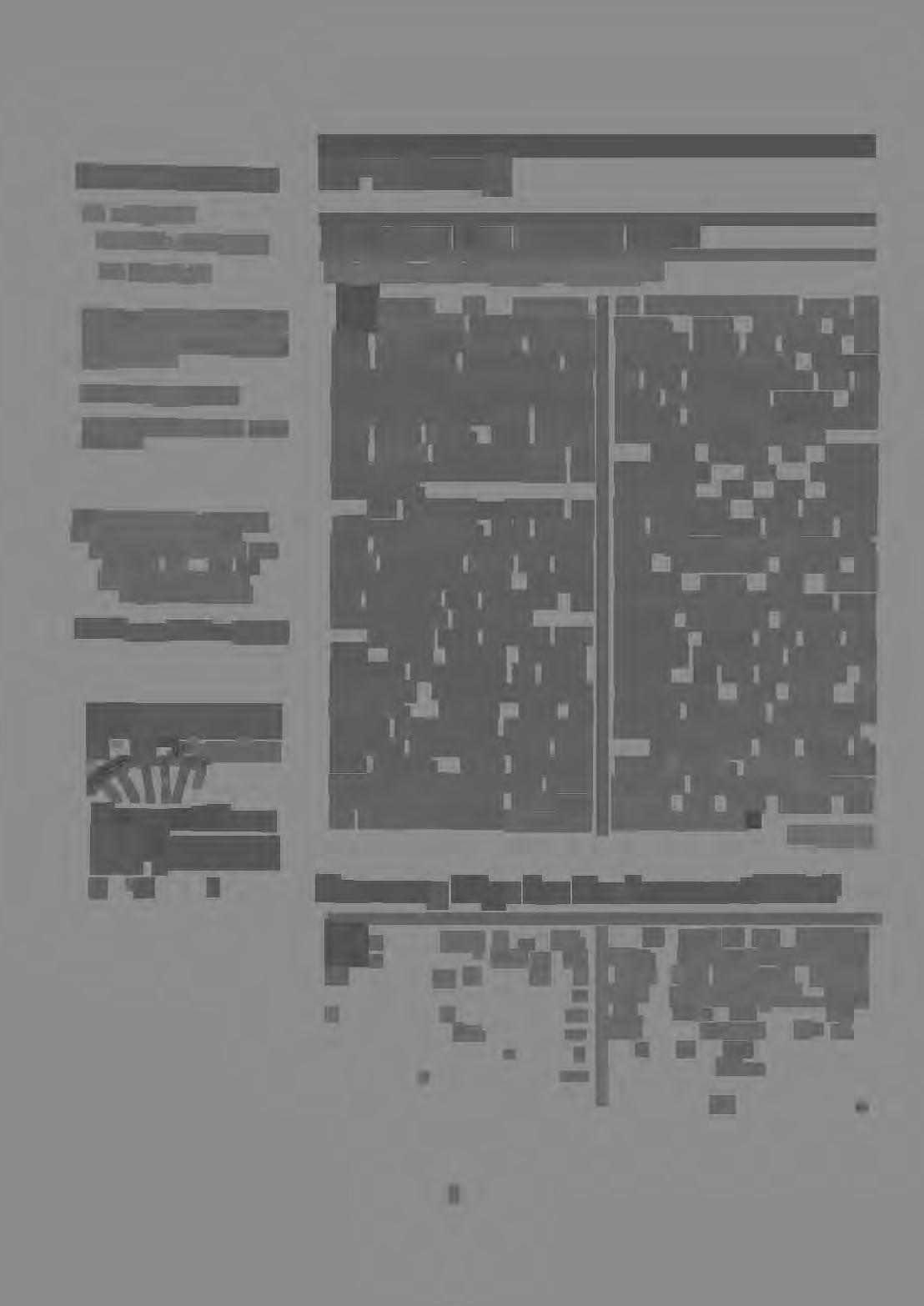
Cbntrary to Fanning's projections, occupations such as oceanograJily, range nmEgeDB1t, soil cmservation, and parks and recreaticn have all experier:ced eitrer m.ini.ual gru,Jth or actual declines. This nay reflect trat nnst of tiE jobs available in these areas are in the p.1blic sootor or in fereral programs which have been subject to bu:lget cuts. That enviroonental rmragarent jobs have incra3.Sed in the private ~tor nay indicate that IIBrket forces are respcnding to policies resulting frcm legislation such as the Nitional EhvirctlIIB1tal Policy Act.
Fanning built his caiclusicn on ''assurrptions about the ecmaru and about tlE envircrurBnt; on tre few projectioos available; on educated hmches trat the dEm)Cratic processes are ideal]y suited to respom to a yoothful fervor for revoluticm.ry though peaceful ~ial crange; am on the belief that the yoong people of /lrerica are not going to drop tre envircnDeltal cause."

ltM, over a decade later, it is ti.nE to ask oorselves if tbese assurpti(l")S, especially tbe latter two, are still true, and if they will be in tre future.
Rob Van OrsowBettn lag, we rmy tBve t.o p:lclc a new ratiaBl. syai>ol. Qr p esll'!t me, t.be bald eeg]s, is in dEqer or extimtim in 43 states mi is rapidly d1 SIW,,t-~ in five others, imlLl11ng Wl8hirgtm. Chly Alaska mi Fkrida l'IIVe at.able bald eagle pop.i]aticm. 'lhe tald eeg1s is cm or 200 plants am 8IWIIU8 in Rrth Anerial tlBt are peeent]y in or extimtial. SI.me the arrival ot the pi]grjmatPlynmt.h Jt>clc in 163>, over 150 2JP8Cfes or rative ftua, am Jj) speoisa or native t'kn, mve been 1mt tcrever. 9y QCIIPlriacm, during thB 3,CXX> years ot the last Joe Aae, aa18'lt:Lsta eat.ilate that Cllly 50 Sl)eJ:les or .__,J~s am JI() 2JP8Cies ot b1M8 rative to Rrth /mJri0El ct1•A)e81"8d.
Elctimt1m amt often resllts &an alteratia'l er el:1mlratia'l or habitat, Wl:ld'l is usi111Jy the cut.oaae or h.llBn settlmmt. Elttimtim Cal be imirect]y initiated by the int.nn.ctim or new 2JP8Cfes or plants mi an1na1s er env1rcnnent.al pollut1m. ll'blmatim, agr1culture, t.id>er~, wetJarlis dnlinage, by stock, hjgbeJ mt otr~ vehicle use are aaag t.be amt ckwastatirg or tu&l activities. Pest1mdes am herbicides also pea DBjcr ttnats t.o birds am 88 the bud eag1es. rn 1rx,7 the u.s. spnq int.o actia1 mt JBSS8d the lhtareeated ~ies Preaer'Y8tim Act, dedi0B1:ed to irotect tmee 2JP8Cies that are nearly extimt. N!!IW J,gislatim '88 JUsad in 1973, oalled sinp]y the Itmtgated ~:les Act. 1h1s Act
directs the govemnent t.o prevent f\Jrt:her extirotJ..als by l govemnent Jlll"(mSe of emangered species habitats, oamerve am P"<>tsct ft3deral.]y nereged 1ams, am EmaJra89 mlividl.Bl stat.es to eract their <Kl e.matWJl'ed f:.'1)8C'1es l,gtsJat.im. 1he CU"r'8nt law oow irotscts 756 species 288 or t.hem damstic, the nma:lmer f\:reie,l.
Itaed dacl by a 11B2Je or red tape, om.cials are nn:t1ng it harder am are expensive to exiad the 11st. In 1979, scm 65 species were died to the 11st, bJt the rulber t.o 15 in 198), an:I s1me President Reapl tas takBl over m new 2JP8Cfes have been uied that wren •t already piq>oaed \.mer the Ori.er ariain1st.ratim.
SDB binJcgists DBintain tlat as mmy 88 three ll)eC:les or biota are beiig lost dai]y the YrJd. thivensity or botau.st Pet.er B1wn says, 'nny of us belis'le that scmet.h1ng like a
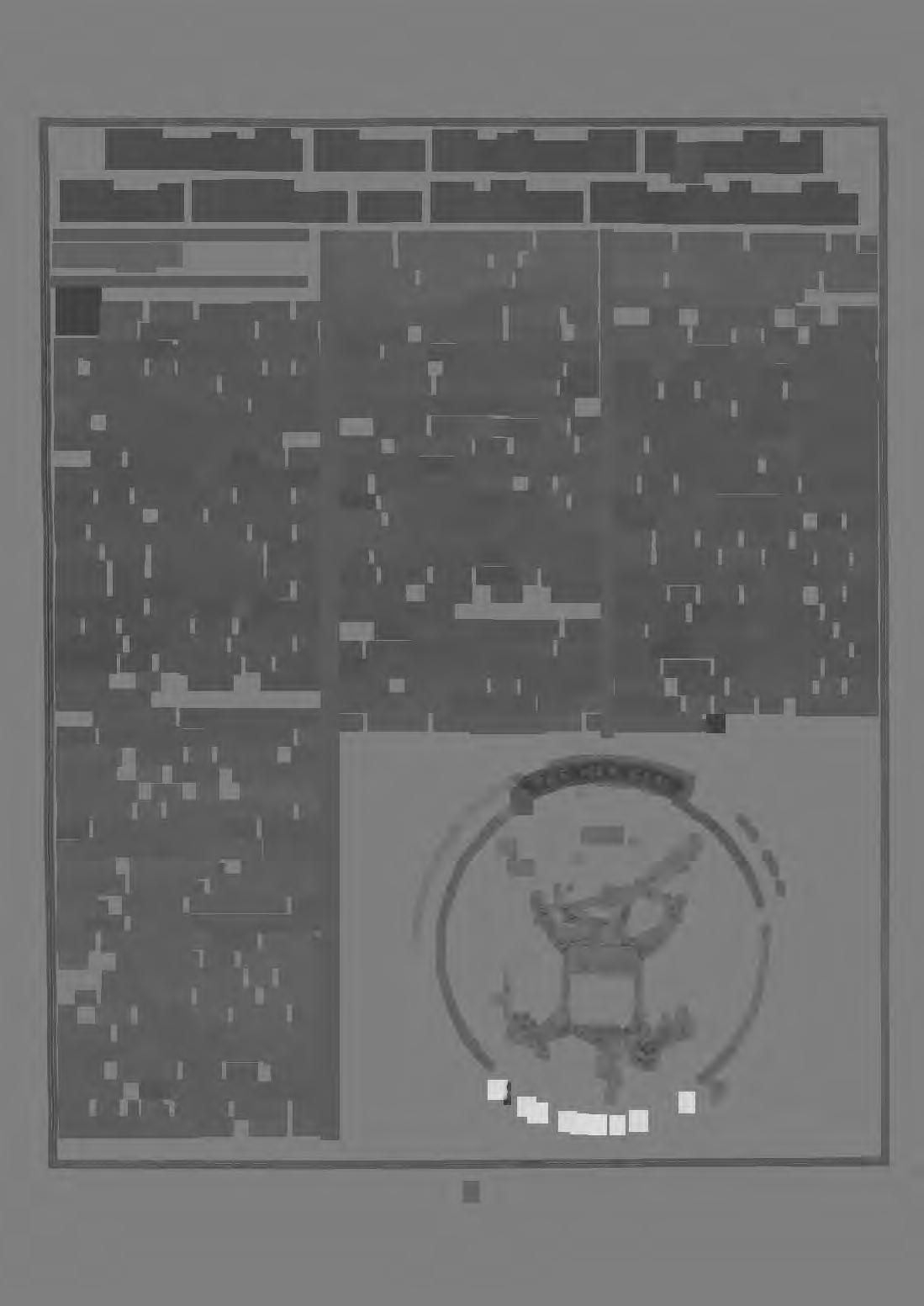
mil.lien species, aDD.11ting t.o a Ql.Bl"ter of the diveristy of l..ift! en earth, will beocue ext:imt during the next 30 t.o 50 years."
'D1e DBEJUtl.de of such pot.ential lass is mw otw1oos in mmy Jarts of the 11:rJd. S:llle 70 na.t:lals are mw oooperatirg t.nler the Cblventicn of Int.ematuml 'n9de in ~ted ~ies or Wild FJa& am PcuB to reguJat.e the upcrt am expert of 1Dprilsd plants an1 an1nals. Mu\Y OCU1t.r1es in the 1h1rd b'-ld and elselihre are IID'lirg to~ their ttnatened wiJdl1te res:JJrOeS. le can cn]y bJpe tlat these will blassan into a new era of oc:nservaticn or the life that still ex:lsta cm t.h1s planet. In the maantille, we <Bl begin Qr seardl tor a new syai>ol of Aler.tea, pertaps scm cnature that t.lTives m urbm areas am black-top wat.elama, lb:iee PoPJ]aticn is t.a> n.aeraJS to ever be ocmplet.e]y am:ihilated ••
t1f photograr,tls are a Il'BChanism for ne t.o share the env:ircntalt with others and t.o stiuulate aW:U"erless and ccncem.
By framing things closely, nature is broken dCWl int.o its sirr:plest <Xl'.l'P()neilts. This creates a calming effect for the vi~ am allows shle t.o appreciate the role we play in uni.ocn with all living things.
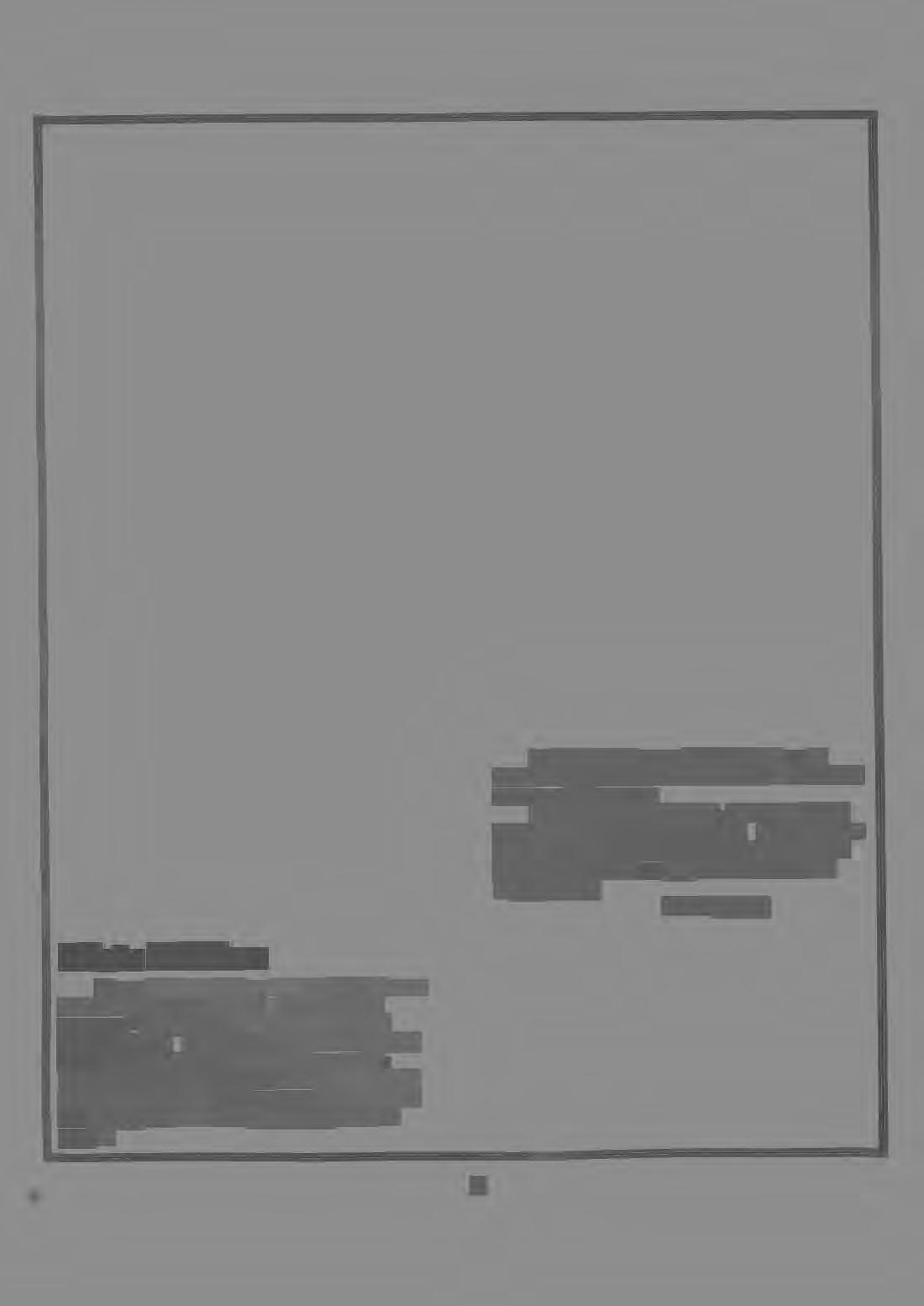 -Lima Versage
-Lima Versage
v.e are proud tD feature the t_--,p three wjmers of the EhvllU'lf!:81t.al Center's "enviru1rrental a\oBrelless" Jn)OO contest in this issue of the M:nthly Planet. Ch'lgratulatioos to Ll.nda Versage first place phot.o hig11.iglt'3 our cover. Crngratulations also t.o Irian Ll.nJ for his second place entry Wlich is found on page 8 and agpin to M3. Versage for her third place photo sh0wn on P3ge 4.
At this DOISlt over 150 million people are starving er IIBlna.ir.islB:i becB.use of tre w:rst dra.lght in Africa in 100 years of rooord-keeping. El Nino, the Pacific Cbean a.ll"r'eilt that ~t balnu we.trer t.o western Wishi.ngt.on Jast spring \tbi.le causing storms in (alifomia, has left D1lCh of Africa witlnlt min for the last tw:> y0:ll"S. Cl.her iarts of the ccntiralt have experierxsi rainfall 6o t.o 8o percent below n:rnal. 'lhe dra.lght cco:iitioos first begpn in l<Jl3, but this is the w:rst year ever for 24 African ra.tioos-aboot half the ccntiralt. 'lhe ra.tioos of the 3.lb-S3haran belt, the Ethiopian H:ighlanis, an1 sruthem Africa are all affected, with too ~th hit tre hardest. Three to four mi.llioo people are expectoo to starve t.o death this year as a result of the hostile "'83.ther. thitei N:ltiOlS Children's Fund estinates that 100,CXX) cm..1dren will starve, while 200, CXX) will be i.rreversiby danaged nun DBlnutriticn. Mtlnutriticn deforms children, aids the spread of rralar:ia an:i hep:ititis in aci.llts an1 can cause i:m-a]ysis and blindness. Staples of tre dra.lght-et.ricken African diet inclu:ie ooked grass, rat.s, an:i next sErun1's saads.
villagers are so desperate that they set fires in treir fields to 3ld<e out rats; toose fires oft.al sprEBd am kill tre few crops that have oenaged to survive. M'.)st cattle have died, either f.ran tre dra.lght or fl"an the frequent outbr'EBks of rin:ierpest, an infectioos cattle di3ease.
M.td1 of the problan is institutiooal. Mmy Africans use primi-
rr.mn Countnea troubled lWlliJ by drought
Countrt.. Mt1ousty tLlJ an.cted by drought
tive agricultural techniques which oore]y allow subsistence in rx:>nral ccn:iitirns; dra.lghts spell disaster to these tamers. Fltrtrernore, nany tribes have rooent]y aoorrloned their ncnadic lifestyles. In the P:1St, they tilled CD:! pi~ of J..an1 for a few years and then m:)Ved on to a rew area W'lile tre old plot reg:im:rl its fertility. rbl .farmers stay in one place, allo..-ri.ng the 1an:l t.o gruw tarren, resulting in inc.raasing scarcity of arable land. Chtp:)urrling tre problem, the African ccntinen t as a w,o le h~s a JX>pilatim gro..,th rare of 3. 5 percent per year.
lhited rtl.tions Fcx:id an:i .Agriculture Crgpni2ation stooied 18 dry Arrica1 natiOlS an::i detennin:rl that 4.2 million retric tons of
grain ani $76 million woold be ~ed to avoid rrass starvation. Toe lhite.:i st.ates has ple~ over $50 million in a i d so far. AltinJgh the thi too States, C:uBda, \Estem llirope, the u.s.s.R. am J:ipan have delivered th:x.lsan::is of tons of food aid and millions of dollars of e<.X>nODlic aid, little of it has reacned those in need. Felief a::.d is se1t thn:>ugl international bureaucracies which \,BSte resources an::i cause delays. Sale African officials steal aid f\.njs or use tie fooo for tieir aninB.ls. These dry countries, nost of them pocr umer tre best ccnditicns, do oot have the facilities for widesprEBd fooo distributim. Imd netw:>rks are poor]y ccnstruJted am few trucks are available. To help
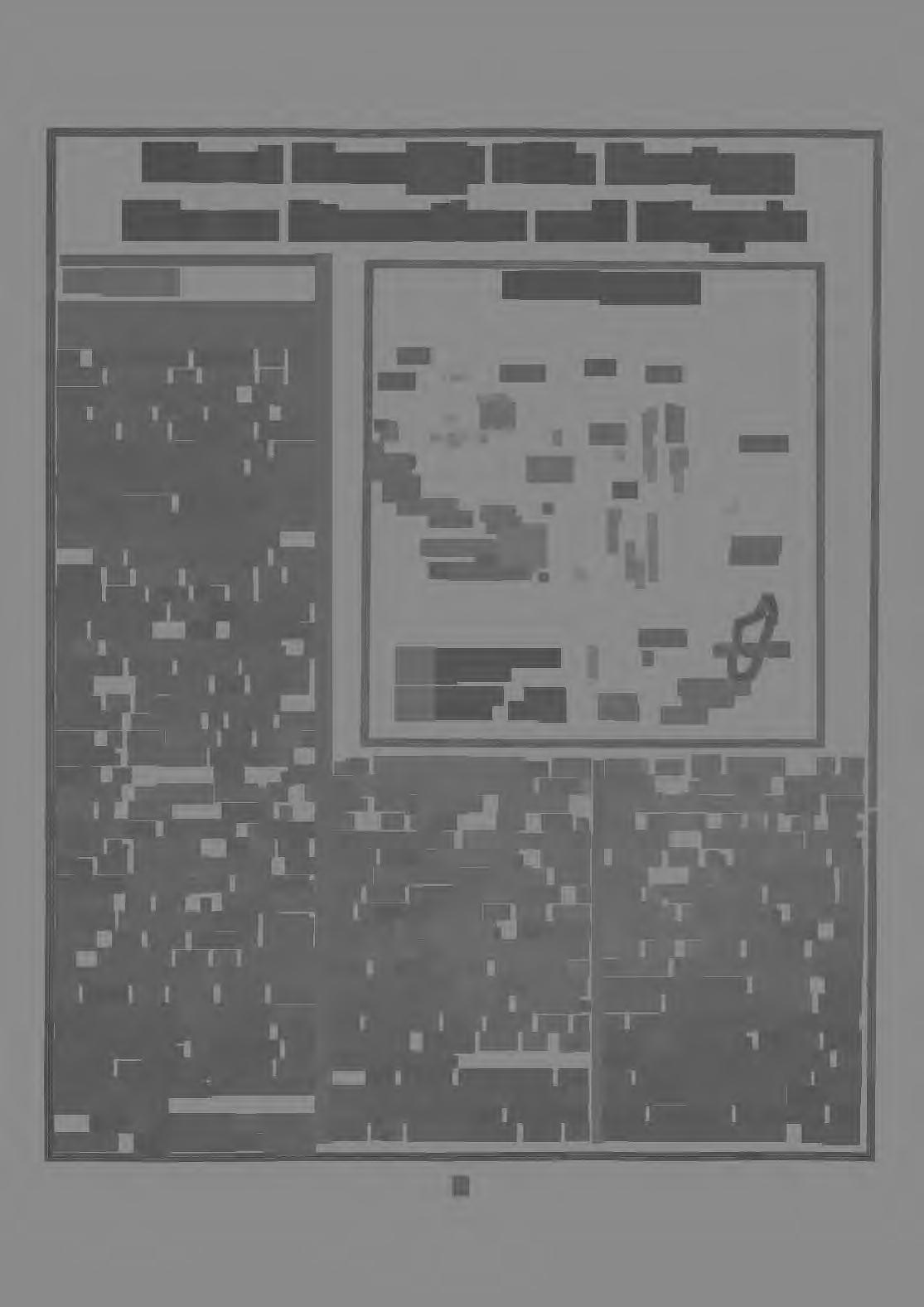
MAY 1984

It's hard to believe thatmy year as Environmental Center coordinator officially will end with the publication of this last Monthly Planet and Environmental Center newsletter. At times I thought perhaps we'd NEVER reach the end of the year-- our endless planning of events; "coordinating" people, making reservations and muddling through the Associated Students' considerable paperwork, making and then posting posters, attending meetings, and attending our own functions seemed to engulf every aspect of my life. But now that the Environmental Staff for the 1984-1985 season already is busy planning next year's events, I'd like to indulge myself and take one last opportur1ity to briefly reflect upon the past year at EC, to thank a few special people, and to take a brief look at plans for next year.
We, the collective Environmental Center Staff, set our goals early last fall: to educate the community about pressing environmental issues and to become active facilitators and contributors to the solution of these. We tried to do this by offering a series of small-scaled events instead of concentrating on a few large, in-depth conferences. We realized that by stretching our resources out in this way that we'd have to address issues perhaps more superficially than we'd like. We hoped that we'd compensate by reaching a greater segment of the campus community by our offering a wider variety of issues and events.
This "strategy" had its successes and failures. In retrospect, I suspect that we spread ourselves out a little too thin; that by trying to reach everyone, we reached fewer than we might have by narrowing our focus a bit. Although we only would have reached that part of the community who were truly interested in a couple of issues that we would have examined, perhaps we would have better utilized both our resources and time. We hoped to bring environmental issues alive to those we'd felt needed the knowledge the most--those who as yet have little understanding of the importance of environmental considerations. However, attracting non-Huxley students to our lecture/films was more difficult than I'd ever anticipated. Sometimes attracting Huxley students was equally as difficult.
In the process of trying to bring environmental issues "alive" for people, I have learned so much, professionally and personally. I learned, firstly, that Western students are busy folks! It takes a lot of advertising and poster-
making to grab their attention, but once we had it they proved to be fun, curious, concerned and enthusiastic. I learned that I could never learn all there was to know about environmental problems, although I tried, oh how I tried. I discovered the fine art of "delegating" responsiblity, and then to take responsibility for the actions of myself and my co-workers. I also learned how to make decisions ... by asking the advice of everyone I knew on every move I made. I learned how to drive a lonngg AS van. I forgot the meaning of a "free weekend"; I intend to relearn this phrase soon. I discovered I have peripheral vision ... by the end of the year my eyes have been trained to scan every poster board on campus in a furtive search for an EC poster. Also I took to recycling more than ever before--usually other group's posters that were plastered over ours before one of our events. I learned never to schedule a dance on a friday night of a holiday weekend. Never. I learned that one can't procrasinate planning events like one can one's homework. This was an early lesson.
All in all, it was and educational and fun, yes fun, year. Certainly I did not go through these "learning experiences" alone. Thank you Peggy (Morgan) for hang·;. 0 ::- there for the whole year. Your consistent help and ideas were invaluable. 'f.Oll are a cook extraordinaire and have been my "right arm" throughout all a~· o~r ups and downs. Thanks especially for listening when I needed someone tc ta~ to. Thank you Roy \Fore) for so easily picking up where Carla left off. You were an excellentprogrart director, your calm reassurances were so welcomed, as was your help with Earth 'eek and Ernest Callenbach. Thank you Carla (Bartlett) for being our fall and winter program director. Kulshan Cabin certainly owes a debt to you, as I do for your work on the film series and your support and enthusiasm. ThanK you Sally (Toteff) for the excellent publications of the Monthly Planet this year. In my unbiased opinion, these Planets were informative , appealing and er.tertaining. I'm amazed still at how nard you worked to make s11~e tne P anet was always at its best: the marathon 3 -day editing sessions, the erdless searches for available word processors, the recruiting of ad spor1sors, grapnic artists and writers. Thank you most of all for your never-ending support anct your rr·endship . Thank you Steve (Manthe) for your hard work as coordinator for the EC Library. Thank you for your work on vhe plans to move the library, for picking up your mail in the Viking Union and for your continued friendship.
Others I'd like to thank include our advisor Steve Walker, seminar instructors Lynn Robbins and John Miles, Greg Bawden, Paige Denslow, Doug Dobyns, David McFadden, Marc Ravaris, Laurie Stephan, David Wasson and Dawn Westall. A special thanks to Ken Enochs and Deke Jones at the OP for their continued advice and loaning of endless supplies.
Laurie Stephan is the new Environmental Center coordinator, a talented and capable woman with whom I know EC will thrive. Roger Taylor will be the program director, and he and Laurie will make quite a dynamic, creative and energetic team. Next year's very qualified editor, Dave Kuester, already is working on ays to improve and expand the Monthly Planet.
On the slateboard for next year's seminars are a conference planning seminar (fall) , a second Canadian-American seminar (winter), and a Northwest Environ~ental Studies Students Con.erence (spring).
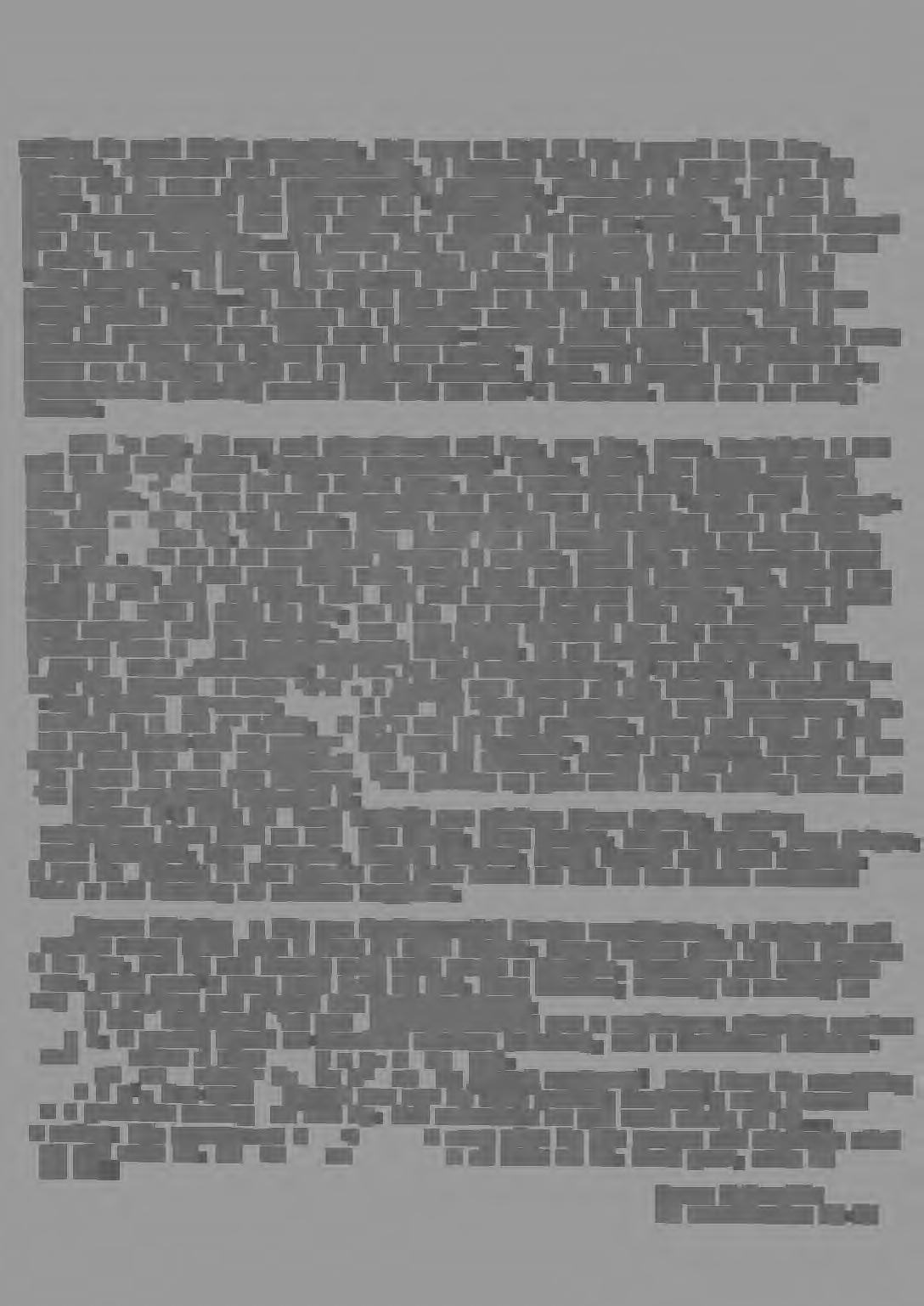
Leno your talents to the EC and the Planet nextyear! Join Dave by enrolling ·n Huxley's two-credit Planet seminar to help produce Western's only journal that promotes ecological sanity. And volunteer or get work study at EC ... remeber: the environmental cent r can only give to the campus and students what you put into it. It can be what- r~r people make of it. Next year, make it ACTIVE!!
Karen Mccrackin EC coordinator 83-84the damstic eccrxxey, nuch of the fertile lan:l tiBt reoa:i.ns is usai to proouce export ccmoodities such as ccxxa, rubber, ani coffee instead of focxl for local cn1SU1IPtioo. Ircru.cally, IIBnY of trese nations are feeding us.
Political unrest has augrrented the distrirution problem. Mmy of the d..roug-lt-iiffected countries are experiencing civil W:lrS. In
M::xzarrbique ani Ethiopia, anti-govel'Ill'El1t guerillas attack farmers, ruin sffid ani fertilizer distrirution centers and block suw]y cmvoys fran rextching tre hardest-hit areas.
If tre present dilemra cmtinues, experts have predicted a ''najor global catastrope" by tre year 2CXl). The wealthy natioos of the 1d ~t t.o be doing nore t.o
help. 'lrese natioos will help detennine Africa's future by the type am extent of assistance th:!y provide. k1y lloorican~ich or ixx:r-can receive "surplus" focrl frcm the goverment by sinp]y sjgn:ing a stat.eoEnt of low .irnxle. Yet for Africa's starving millions t.hare is oo sudl hope.
Fbr IIBl1Y Africans it is already "the day after. "
M:>stthird \.O"ld nations are on the brink of disaster. Tuey fare IlBlnutritioo, disease, l.lt1eIJi)loynim t, and overc~ing. The coontries trat need tl'E nost help often have the least azoount of capital ani natural~ t.o help them E?Pin self-sufficiency. The widening E?PP in :iroooe distrirution between developed nati<XlS arrl urrlen:levelopoo nations is causing political ur~st and financial cl'aos. 'Ihird W:>rld nations face huge depts t.o Alerican banks arrl can't begin to pay tre interest
There are na.ny rea3)t}S explaining the extre poverty of the Third \brld. Population is the biggest problem. Mmy 'Ihiro W:> 1d nations have populations faster tran treir eo::xnnies. With the likelihood of nuch sl~r ecol'XJDic gro.Ith, naticns with rapid population gro.Ith nay face declines in alr83.dy low living st.andaros. Jepid gro.Ith has set off a whole chain of problems. The tropical and subtropical cl:inate of nnst 'Ihiro W:>rld natiCl'lS is best suited to suwc>rt hllIBil population at low densities. &:Buse of an average amual teoperature of 20 degrees Celsius, the hLlrus in th:? soil
breaks down quickly, resulting in a ooil trat is low in nutrients. The roodiocre ooil is o:::moon]y subjectoo t.o sJash arrl bum agriculture ~re a plot of Jand is cultivated ard then is left fall™ fer several seas:ns, 12 to 13 years. Il.lring these fallc:M YEBrS tie soil regp.ins the nutrients that were lost: the longer too fielrls Jay tall™ tie better of the soil will be. ~ver, with pop.ilatioo in tropical areas expm:tlng, demm:i for lam increases. nrus tallc:M twas are redooed and ccnsequent]y the larrl is becnning less fertile. :ain also ccntrirutes to the problem. In rrany '1hird W:>rlrl rEgioos the rain is unpredictable and \ii'len it rains, it is often tcrrential. Fbr exanple, rains of nnre than 200 mi.11..ineters per hour regularly orur in O'lana, while t~ m::nthJy average in I..oooon is 50 millimaters. These rains can be folla..ed by m::nths of · drought. If the Jand Jaying tall™ does not have sufficient protective vegetation, erosion takes pJace ard further strips tre soil of nutrients. As the land prodJ..¥Jes less, srall farmars need to borTIJw nr:re m:ney and ort.en eventually end up selling treir lam t.o wealthy 1al11 owners to pay off their debt. Aside fron difficulties which
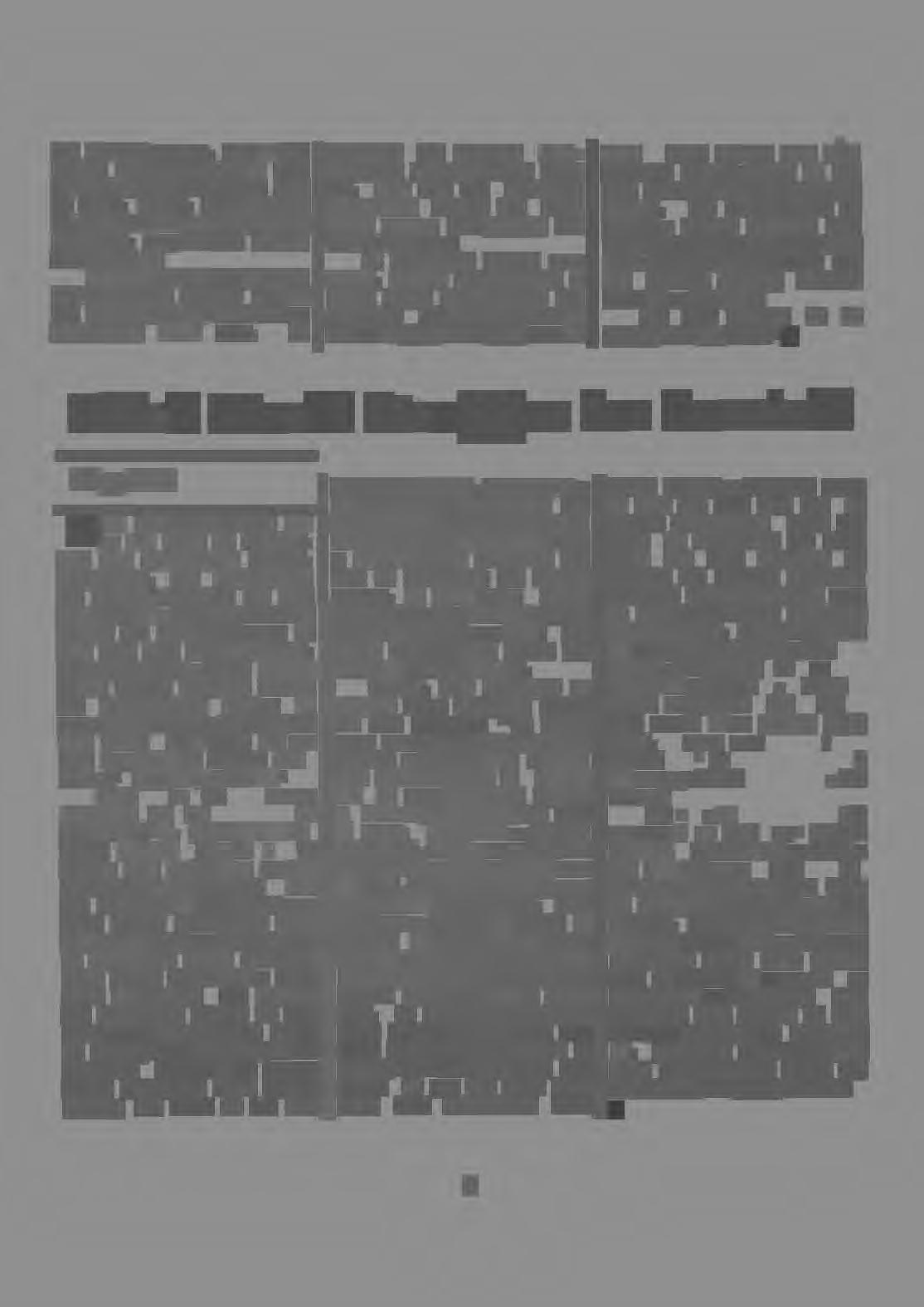
nature ilrposes on the Third \t>rld it also has been hard hit by \Estem civil:iZation. Since th:! tines of colonial.isn the Third \brld has been exploited by European an::i luerican interests. ElJropeans have traditicm.l.]y saE t.o Third W:>rld natiCl'lS destroying native cultures, taking the riches of the regiai, ani leaving disease, poverty, and despair. In s:l1e W:lys this still goes Cl1 tooay. Mtltinaticnal corporatioos and wealthy lam OW1ers often exploit clmp labor, natural reso.ll"Ces and take advantage of tre tax havens creatoo by the govemre1ts they suR)Ort and cx:ntrol.
'Ihe elite classes 001trol the goverTI1B1t in nost poor natioos creating a<IiitiC1Bl stress between the rich and poor. Mmy of the recent revolutioos have been Ccll.lSOO by this split between the rich and the JX)Cf'. The distributiai of wealth between natioos and am:xig .imividtal.s within thase natiCl'lS 1D.1St be l1i:ll'TOiJed if we are to see solutioos t.o ~Jrl probler5. Lar¥i e~ will have to be usoo l1J.ld1 m:re carefully am intensively. Fbp.uation 001trol and equitable distributiai of wailth are prerequisite for global 3.ll"Vival. •
Sowtat did you do this for anyw3.y?"
am I sat in tre bacl< seat of the patrol car, holding hands to reassure each other. Too fr.igltened to answer, we _j.lst looked at ea:!h otller. rte were scared, we thought they might be taking us to jail. The cop turned aW3.y and mittered to himself, "I guess it's the principle, ht.h?" I looked behind us and saw the rest of nu friems lcmed into patrol cars.
rte thirteen had be€fl part of a darxnstration and blockade at Fort Lewis l1EBl" 'lacara, held on Mu'Ch 31, 1984 to protest U.S. military escalaticn in Central /rJErica. Farlier that afternoon, we had W:llked ha1d in haxi up to the entrance of the base, stretched out across it, am sat dCW1. There were oolookers: about 100 picket:ers (also part of tre denr.rlstration), cops in riot gear, ooldiers in camt Ll'liform with gns and clubs, and people in cars that cru1.d no lalger Jxl.98 throug-1 the sate. \le were a::i<ed to lE:ave by the cop9. W1m we said "It>" we were arrested dragged to waiting P:ltrol cars.
&:> wmt did we do this fer ~? Farlier that week, the first troo~ to i:articipate in the Crenadero I exercises were sent ft'an an ergineering batallioo at R>rt lewis to an:turas. They will be building assault airstrips. These exercises will DDVe tln.lsaoos of U.S. troo~ int.o finiuras, which bon:iers on both El Salmor am Nicaragua.
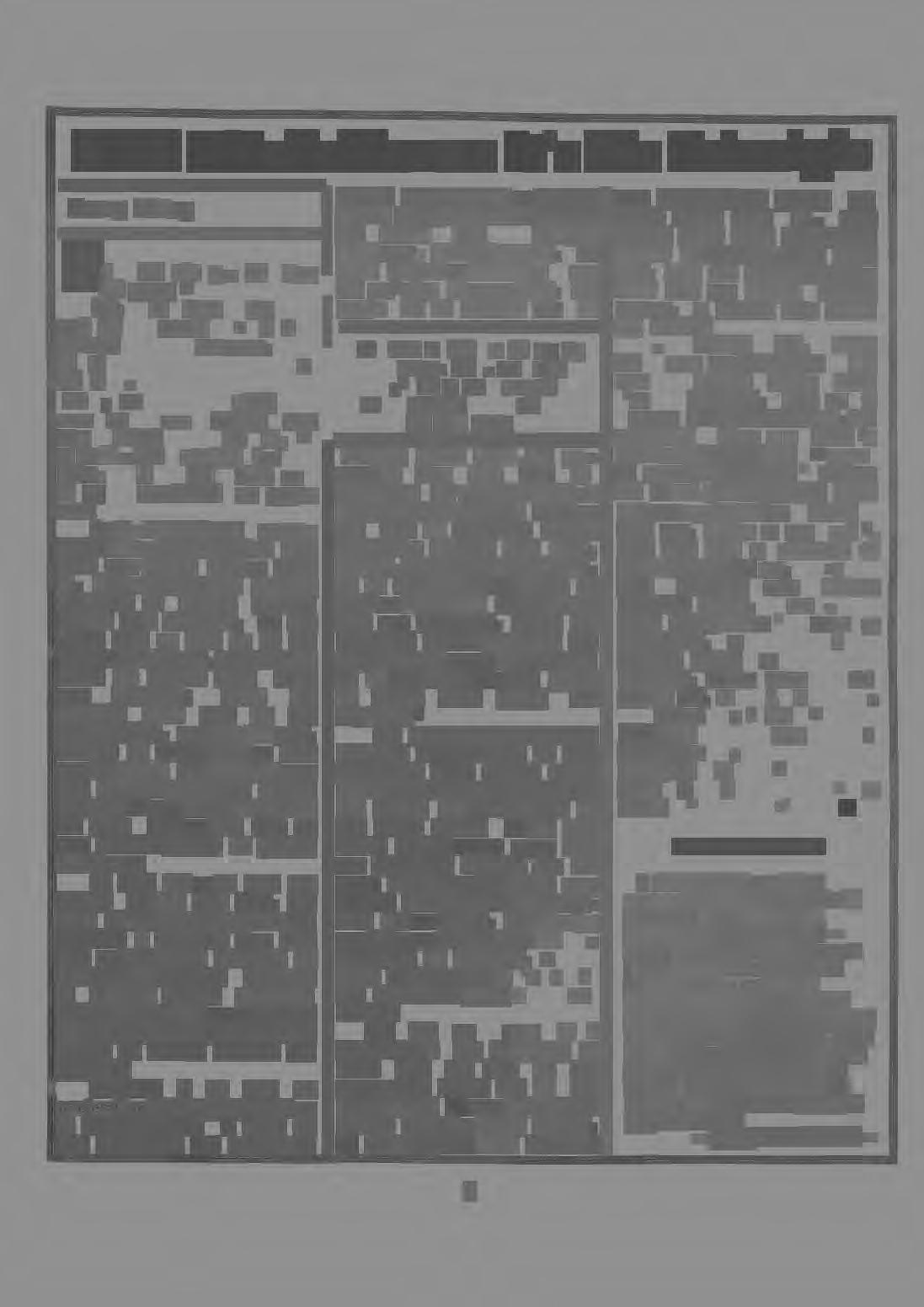
Crelladero I is part of accelerating U.S. military ruild up in Central hrErica. A tuild up that Salvadorans am Nicaraguans
believe will result in an invasicn of U.S. troops into their C01.mtries am direct U.s. milltary involv€1IEI1t .111 their affairs. acted because~ believe in trese rations' right to sovereignty. The people of El S:llvador an:i of
We were asked to leave by the cops. When we said, "No," we were arrested and dragged to waiting patrol cars.
Nicaragua shoold create~ govemte1ts that they want for themselves. Olr OW1 Ieclaratioo of Iooependance states "That whenever any Fonn of Cbve.rntIB1t l::>ec:xxIEs des~tive of these ends (Ll.fe, Ll.berty, the Pursuit of H3.ppiness), it is the Right of the People to alter or aoolish it, am to institute new Cbverment, laying its fa..n:iaticn on SLdl principles an1 organizing its pa.,3rs .111 such form, as to trem shall seem rocst likely to effect their S:ifety am H3.ppiness."
The people of El Salvador an1 Nicaragua have the right to fonn goverme1ts wtn3e prinBry mtenticns are to serve the mterests of its people, not the interests of the lhitErl States. W3 did this acticn becBuse we are angry trat our goverment is using our mx m::ney to relp pay tha brutal govenmmt of El Salvador to exterminate its <Ml people, arrl is 1.1siog rur tax m::ney to uooenninl3 the ·Y-:,1 goverl'IJErlt of Nicaragua, ;:ir)i .3 using rur tax ~y to in'Jmtd-ite am ccntrol tha people 0 f ·J:?ntra l A:rerica.
W1y did we c~nose civil d:is:>bedienoe? W1y be willing t') brEnk laws an:i take on th= coo.sequences han:ied out by the ~l system? \e were ctargej with ' failure to cbey a police officer. \le did it becBuse civil dirobedi-
ence challenges the system. Ir. Mlrtin wtoor King, Jr., wten writing about civil dirobedienoe actioos in tre Civil Rights M:>veITEnt, said that direct actiCt1S in \<tlich laws are broken, creates tension, a tension that forces negotiatioos. believe that civil disobedience can shock other people into ccnfr'Olting issues first within themselves, then on a {X)[JfillJUty an:l nationwide level, an1 eventually force our natim 's leaders into ccnfralting tha issue. rte protested at Fort lewis because the severity of tre problem calls for severity of actioo. T.hless w:mt wa.r, unless we w:mt G. I. 's fran Fort Lewis an:i elsa,.here to die .111 Central tmarica, unless \-Bilt thousanjs C.entral Arericans to di~, unless mt desth 3:1uads to CO'lti.ri > ring S:llvadorans, unless we want t.r.> cxntin~ mining trE harbors of Nicaragua, nust resist, · uust siy no, tOJ, bef re i is to'> late. 'lho~..a s~id that " A~ ioo fran pr inc ip lP., th , percepti 1 perfomance of :igh l ~h;~s things ard ,:;; 1a ti(X')S. " ie ,:x>p was right w1~n he f.X)'<,..., in:i r ' is brmth. t was · princi.pl~.
If the injustice is part of tile necessary friction of the machine of government, let it go, let it go: perchance it will wear smoothcertainly the rnachine will wear out. If the injustice has a spring, or a pulley, or a rope, or a crank, exclusively for itself, then perhaps you may consider whether the remedy will not be worse than the evil: but if it is of such a nature that it requires you to be the agent of injustice to another, then I say break the law. Let your life be a counter friction to stop the machine.
- Henry David Thoreau -
Sxx>~ n:lglt soots of 09crg1a Pacit.ic is a scrt of special i:roject of mine. 'lh1s puwticwar :n>t W:15 takal at the floa~ llrf below the rJ.S'l st.ere at the rxrthwest ocmer ot CP.
'lhe picture represents 1eWll"Bl. elsments of Jix>t.ognqily am env:ircnlB'lt.al ocmerns. 'Ihe old rotting piers in the fcregran1 oad>ined with the CJIIUDlS verticals of the Side stacks of CP oad>ine ftr an in~ effllct. It oad>ines the old with the new am neither cne :Ls t.oo pretty - except at night.
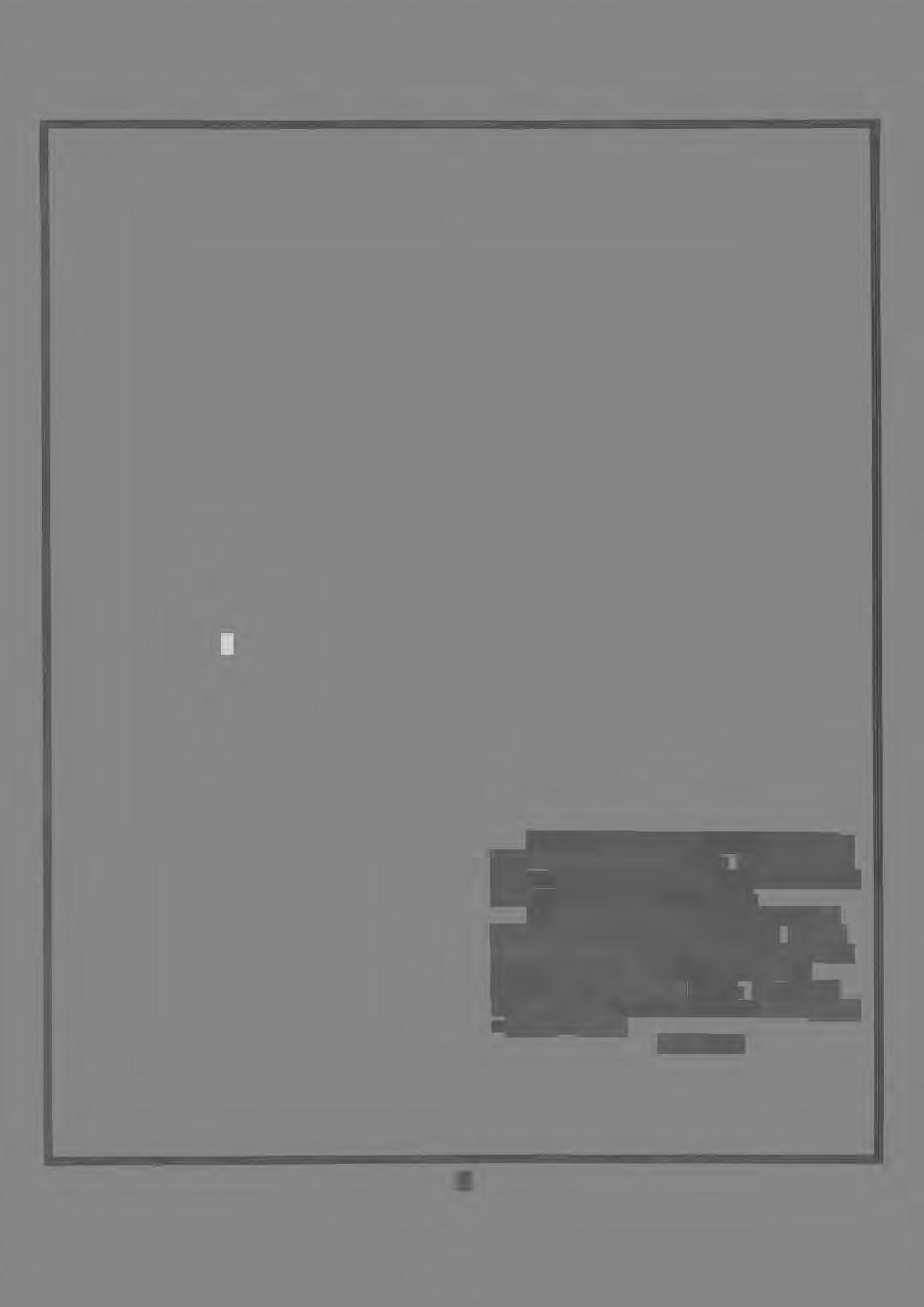
Too earth is rapidly apprcaching its carrying <B~ity for h..mm life. Every t~ we CB.St recycleable naterial cMlY W3 ocue ooe step closer t.o the day htmms will be an eooangered species.
I am talking about oolid "8Ste arrl reoo.iroe depletim. These are bil:> closely related problems tlBt a,e.ht to OCD)el'1'l us for several reas:rlS. depexi 01 mmy natt.ral rescuroes t.o keep a.ir st.an::tard of living at its iresent level. fut die t.o a.ir grcMtll criented s.irplus eocn:J1ff am a rising popll.atim, both rereeble and rn1~ble resm-oes are being exploited at imreasing rates. W'lat will tewen t.o our way of living wren th:!se reniroes are gme? W'lat will hawen to our rape am pillage eocn:Jlff? 'lhe answers nay lie in the way W3 deBl with oolid ~te. a,ery I take DU ~ooge rut t.o the alley am trat USErl t.o be the end of it as ft:lr as I ocncerned. I never st.oppoo to think \obere II&" gprtage went. Altin.fgl in:iividtal cmtributim t.o a W'latcan Cb..rlty 1andfill or an incinerator is smll, the aCClllllla-
tive CQ'ltribltion of the mole OOU1ty is large. 900 toos of oolid loBSte are collected in W1atcan Cblrlty ea.ch week. Seattle collects 1,300 t.oos per day. In ~w York City, there are oo lamfill sites, the ~e is taken by b:3rge rut int.o the harbor am dt.nped int.o the \eter. lbw lovely.
&>lid \iaSte am reniroe depletim are serious prob~. In 1978 the tepartnmt of Agriculture reported that the lhited States spent over 4 billim dollars en oolid disposal. Ci.ties' expemitures for oolid W:iSte fell seccn:l to toose of educatim. Cetting rid of oolid ~te coots al~t as m.dl as educatim. In 1980, 65 billim toos of tin cans were thrown a\ey. '1he lhited States ooes mt teve any for tin except thra.Jgh inporting or recycling. Each 3.niay a:litioo of the ~w York TiDEs requires the clearcutting of &)() acres of forest.
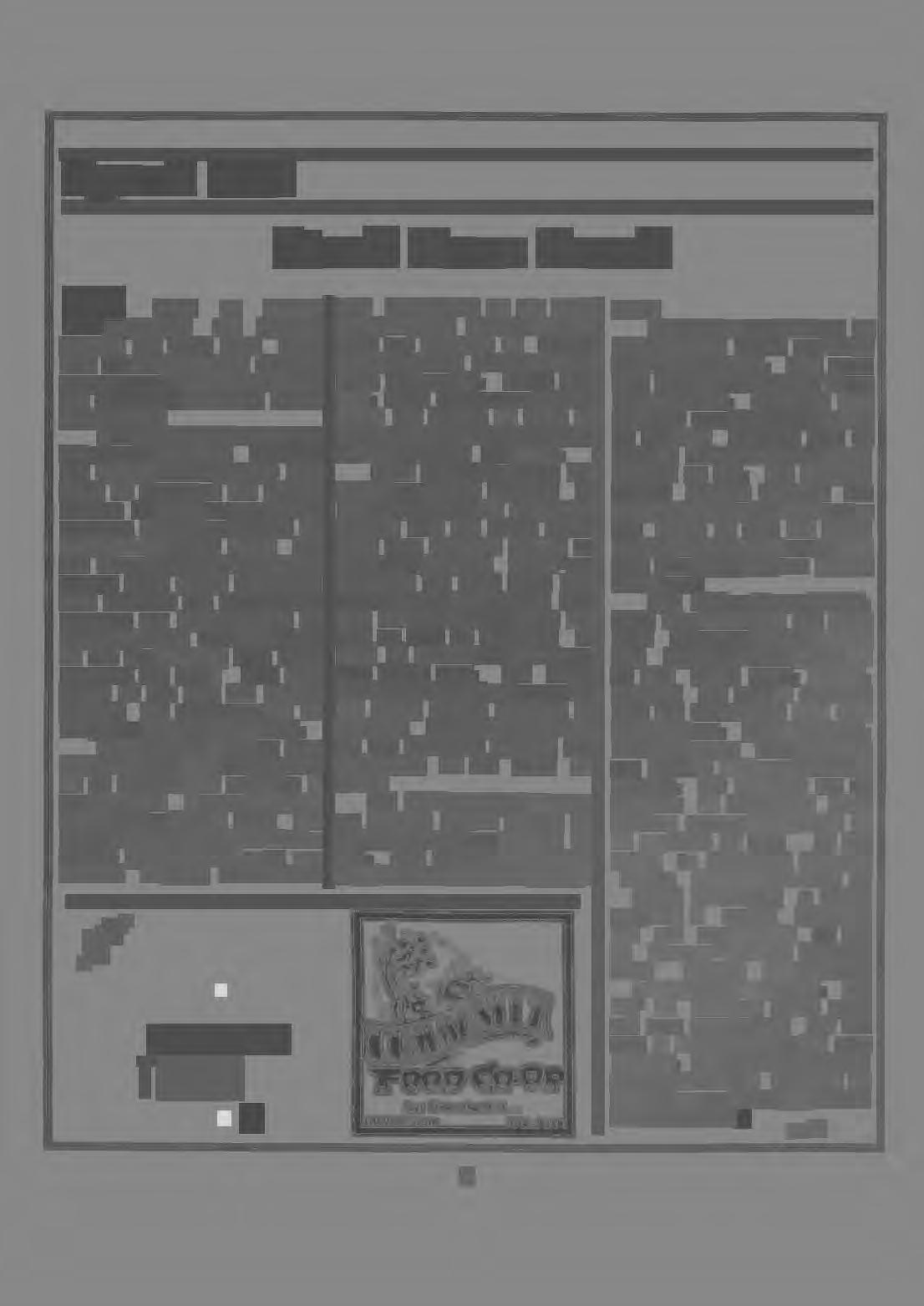
State tepartnmt of Frolreported that 10 percent of W:lshingt:oo's "8Ste \oBS recycled in 1981. 'lhis resulted in a savings of 36.5 millim dollars in disJX)Sal
costs.
According to the first law of therm:xiyramics, natter can mt be created or destroyoo. This nmns that gprtage rDJSt be stored in me form or arnther. It doesn't just d:Lsawear the gprooge is left Q1 the curb. The W3Ste JDJSt be taken t.o landfills or other sites, s..ti.table or mt, for disJX)Sal. W'latoom Crunty's 1andfills are rapidly filling up aoo there are no new places to t.ake the i-aste. Eld.sting J.arrlfills will rn-, be kept open even tho.lgh they are n.n'ling rut of rcx:m.
B..lt, hold on to your gprt:age, there is a solution to oor problems. The answer ro.ild be recycling. Jecycling diverts goo:is s!.leh as tin, glass, paper, plastic, alun:inlm, and ~ic DBterials fran the i-aste stream back int.o proo~tive use. PeoplP, of't..en fxJ.Y, "I'm ooly persoo. \.hit difference can I rmke?" This is a ra'iscrable respcnse. fut recycling can be effective in ccntrolling solid 1,Bste and reoource depletioo if it is practiced by rJBnY. To get people to LrlCX)rporate recycling into their lifestyle there rrust be a change in attitt.rle; a change a1,By from the view that technology will rolve our problems. lfte are all in a position to do ~thing about the problem. You don't need a college degree to recycle. All that is reeded is a little space and s:Jre orgp.nization. You can DBke a diffe~ if we all wcrk together. Fbr further infornatim, yoo nay cx:ntact A.S. Fecycling at 676-30S8 or use the Fecycle fbtlire at 1-8oo-REO'CLE.
Jim MadisonWu.te, she caoos • · S'le is \-bite, this is instinctive.~-.,...-...~._., 7i "Chte" she IX>ints across the air, ,-~..-:,,,,"'""-ls--. 1 ·: \ across the nnss, to ~re ./ the stream flows.
e jacararxia tree ies purple tears drying ]and. (,,'"' • '\ '\\. 'l' 1i~~~~~~~,~~~~:r,;;~11w,;''~ Oler ~t grass; over dark earth; ~,,,'11';;<,!:i~:--~nr:ii
I nust foll°'1. f , ·2
It is oot far' still she m.JSt lead ,~.]l1~f<llttr~~~~~~~r~~~f",~ ~::«.;7\.lj ;1/Yoll,'""'~-~~..-::-¾, t.o the flCM.i.ng stream. ..... .. 'il) ~_,...,,---.....,.
1 =-...!."=, Silently, she tells me "I.ook" ))=11,~·-=,.._,
The stream is clear. 1 N:> vision, no secret there. 1'111ri.""t»\.v.ut¥~"':\ N:> fiery proµ-iet nEets rru eye • "I.ook" she sighs. I look, an:i tren, a glistened snow lily f109.ts by. --1 .. Islicate, white, acilingly _'. \~ beautiful; br.ight, p.ll"'e, /~
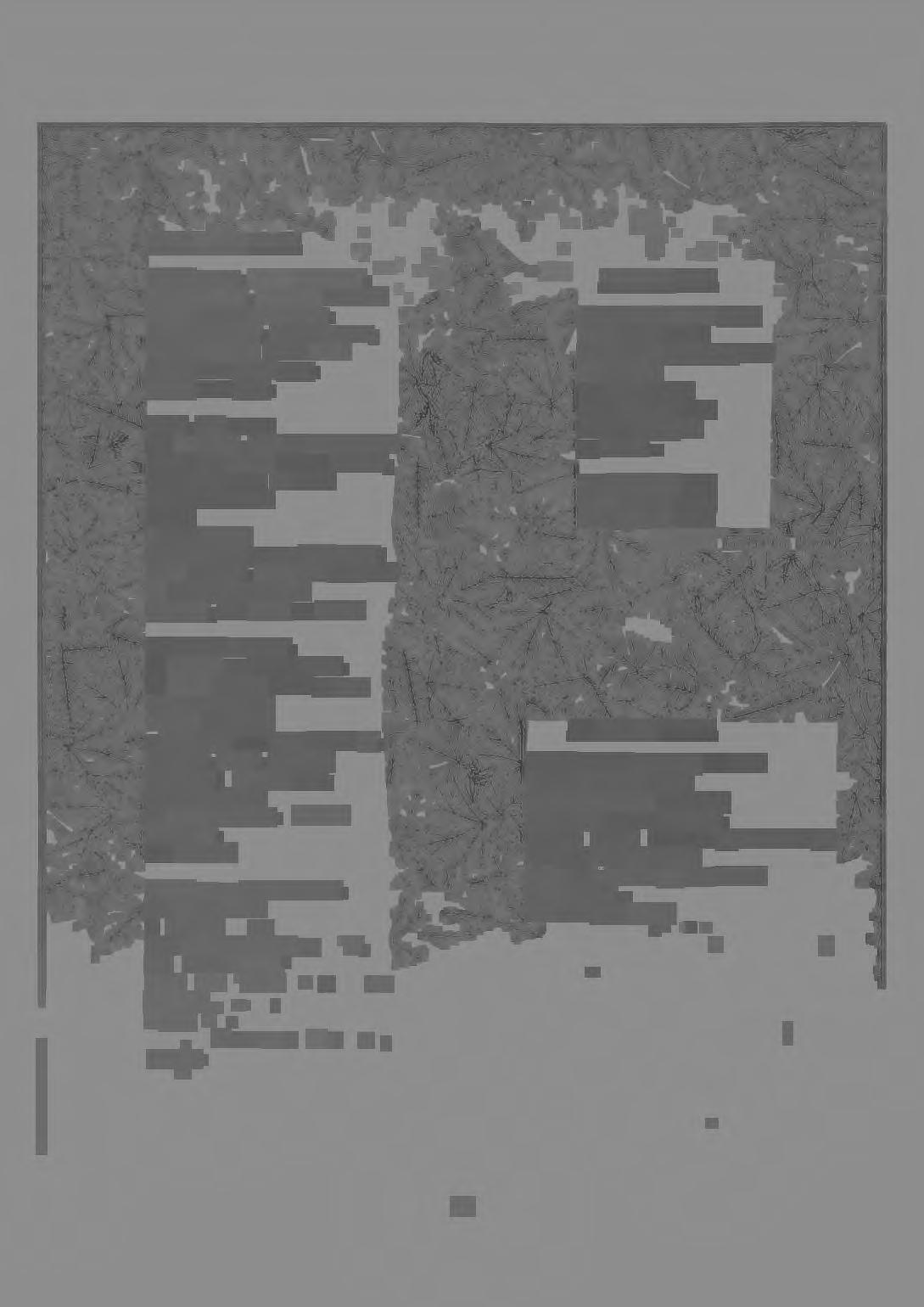
\ 1/, The D:>gs of M>rel.ia
W:ik:i.ng be~ midnight arrl daw1 I hear the dogs nearby -""'I, ) hard dirre1sicns. , I ~-r-t-'t"~'-.a:rlY'<~ ,J.---;.-t,_,Jl_\,j~/j~ ~re,~'~ It oorls, i:as,ses. Another
B3rking, calling, answering fl.09.ts by. 111d another.
I look up at her whiteness. S'le sir:rp ly no1s. A th<XJght cones, .,..,""--""-- '"lhe lilies wt days IIff child, 1 the W:tters thyself" 'Mf:M?""-..::...1. I look back into those waters and
~JJ~i~'g';j,~~'=F't5];.)-<I' suddenly ,joyfully'
I begin cry.
OOler dogs across the city. Distant barks, answered by closer barks, O::ntinue tmtil daylight
,,...,_.'""-- lhtil the rise :in dayt.ine samds · covers them•••
Tuen the dogs sleep.
'lb cry, am she is still nood:ing,~~~m.,,.;~\j,.,i{.-~w,.-.... / smiling. "'-""___,_;J,:i....'""'- V)
erxl nears arxi a new is mting. '!his is the last issue of the M:nth]y Planet fbr the year. .tn:i, dl, wt a year it's been.I le, as a staff, were ocmnit.ed to provci<e, enlieJ'}ten, anger, entertain arxi inspire cur readers. I hope that the of the Planet en caIJP.1S arxi in the cxmru'lity has Jr()Vided pert:irent infanratien, raisoo relevant (JEStiCJlS arxi offered fresh ins:ig-its abrut the earth arxi the fblks W"X> live en it.
tine of this have been pa!ISible, tn.Jever, witln.lt the effcrts of dedicat.ed staff nerbers arxi the other DDtivat.ed :in:lividuals W'XlSe ocntrib.ltiCJlS greatly enmooed the Planet. 'IlnJBt} the list is la,g, I w:llld lli<e to single rut arxi say "thanks" to the folladng people:
Olris Bmko (fall staff) for enthusiastic Jmtic:lpatien, a ready sn1le arxi for f\.n facts to koow am tell abcut dirty green S'DiOall.1.ike chunks.
lDlg Ibbyns (fall, winter staff) for up-t;o-the-mrute kroilaige atn.it arxi ftr te~ us abrut "cru:1s1ng" arxi "greening" in Qmada.
Ivan Farrell (siring staff) ftr going to oeetirgs N'e'l they were caooell.ed.
lby Fore (winter staff) for his anazing ability to oeet every deadl.ire, for writing as clear as he thinks am for being there in a pirm.
Mlrk Q.nl~ (winter staff) for offering a new ''tra'xi" in the bode am film review deJBrtnmts.
H.txley O:>llege for spctlSCring the Planet seminar, for allQdng us free access t.o their word processor am especially to Diana ~ITill, ((arer} Fbisy am S:ll]y Elm:re for their t.oleranoe, ooopera.tien am flexibility.
Famy (fall staff) for list:ening to his DDther am "ere'getical]y" tackling a feature en lmmi..
Kurt Koener (spring staff) for runing errarrls at the last minlte arxi ftr his other simn-tcmaoos ocntrib.ltiCJlS.
Jim Mldi.s:n (spring staff) for his eagen:ess to help in any t,ay' for liking cniCJlS en his pizza am for recycling all oor µ:iper.
Steve Mmthe (fall staff, winter edit.or) for unselfishly giving his t.ilm, for his expertise in editing, for returning all Dt'f mils, for ooffee at Casa am beer at B..d<'s, for his frieniship, am fbr W3.iting llltil spring fbr ''rainy" days.
((arer} t--bCrackin (Dt'f boss) for listening t.o me caq>lain, for her editing advice, for 100% support, for the Seattle i:aper pick up am especially for her frierxiship.
03.ve t--bFaden ( fall, winter staff) for helping me rut thr'ou€1l b.lreaooratic rai tape ~ver I W3S I,mlicing.
Fblks at the OJtdoor Program (especially B..ua am Ibw or Ka-1 arxi D9ke) for being srll gocxi
spcrts atn.it often being Dfl answering service.
Ing Prioe (winter, staff) ftr leaming t.o type arxi beir8 depemable.
Print Sq> fblks (especially 'Ilxm) for exoellant service arxi . never ocnpl.ain:ing atn.it Dfl dismetlxxls.
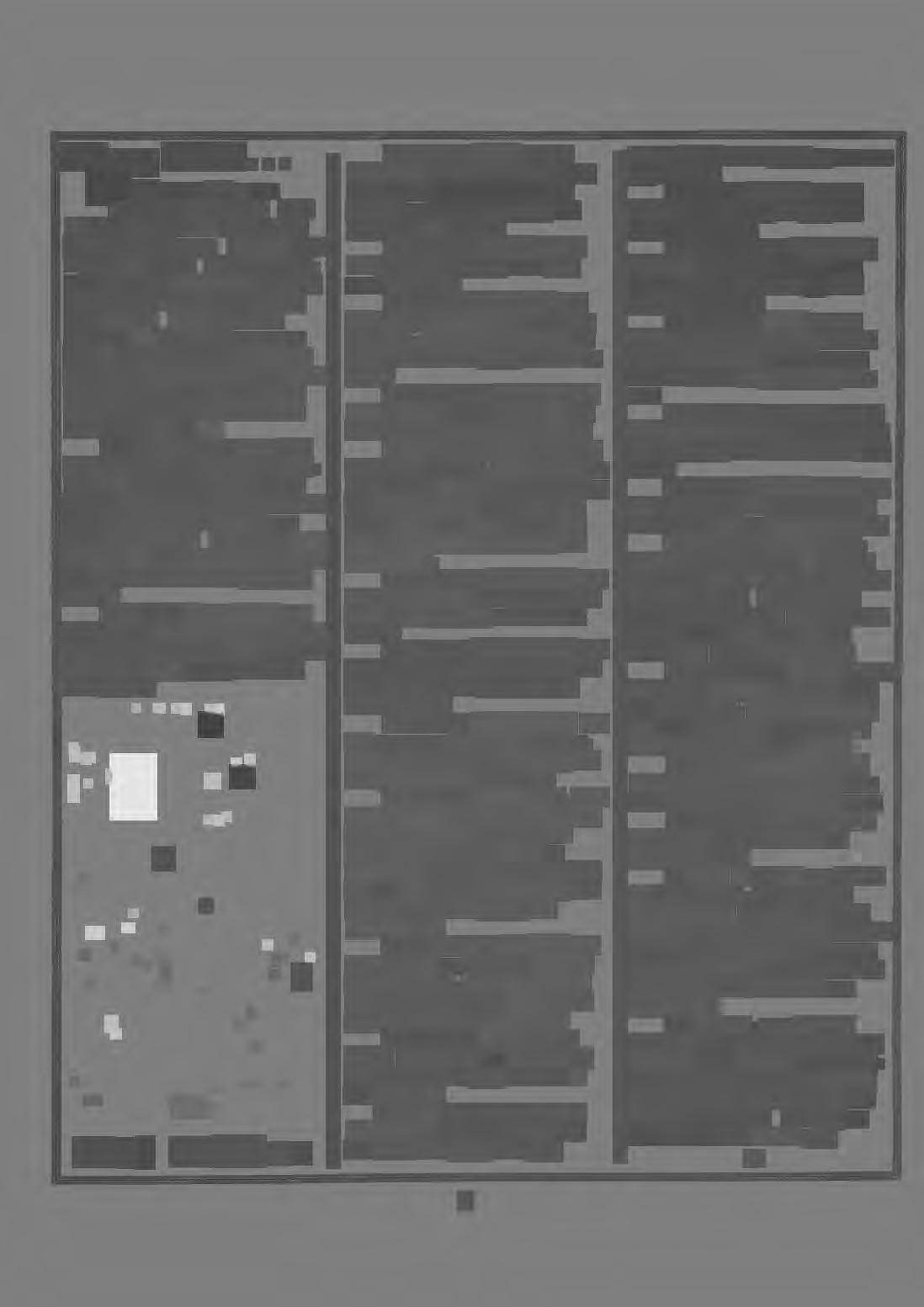
Ri.varas (fall, winter staff) fbr his u,yielding dedicatien as advertising nenager even N'e'l he landed 34 rej8:!tiCJlS in a row.
I$'n R:>bb:ins am steve Willa" (advisors) for their enooorageue1t, m:ral support am ~tive oanDe'lts.
&le (spring staff) for mt dro.Jglting the seri~ of El Nim am for oor "idling" dlats.
I..aurie Ste}'.ilen (fall staff, winter am siring editor) for her la,g l'nlrs p.1t int.o everything; for her i:atienoe am urnerst.aming t-«>rldng with DE, for ooffee at Casa' s am beer at :ad< 's' am above all, for her triemship.
Kristin ~l (fall, winter staff) for cracking the \tbi.p we slackei off, for investigpting \tly snn get m.Jgged am for all the extra l.nJrs en layout.
03.vid Tuylor (spring staff) for ootst.aming gn:lJX'liCs at a DDIJB1ts mtioe an:i fur grizzly rews. lob Van Croow (winter staff) for focusing oor attentien en trashy problems.
A9 well, I wmt to say thanks t.o Ernst CB.yden, Is,dtt, Laurie ~is, Lorgen, tktn Miles, Cliy lob~, Alipio 'lerenzi am Nmcy Wing for their carprehensive articles am reviews Wlich added depth am breadth t.o oor p.iblicatien.
Aro f.iral]y' very special thanks t.o oor talent.ed artists Ebb Bertoldi, Muic &n:lix, Iamna H:>fnem, temy }Vcln am 03.vid 'laylor for provcx:stive illustraticns arxi grapuc stat:arents. .Arx:t Ebb, we owe oor re,, lcdc all t.o yoo. st